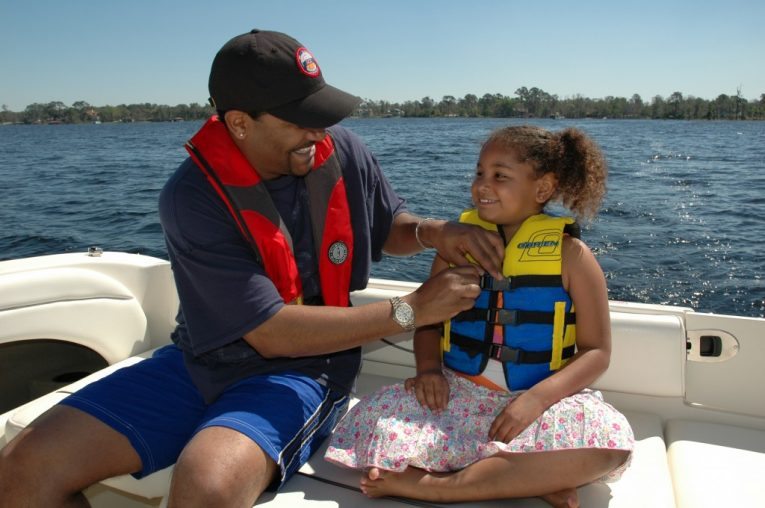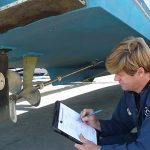Take a boating course from your local Power Squadron, CG Auxiliary, Red Cross, or State agency. Each year statistics show that less than 10% of the victims of fatal boating accidents were known to have taken any kind of formal boating course. Statistically, the “edge” seems to go toward the “edge-ucated”.
Boating courses are fun and could save your life or the lives of those near to you.
Stay well clear of large vessels in restricted channels. Cargo ships, river tows, barges, and other large vessels are very restricted in their ability to stop and turn. Some heavily loaded ships in strong currents take miles to stop, even with engines full astern. So give them room!
Make sure that someone else on board knows the basic operation and systems of your boat, In the event of your disablement as skipper, it might make the difference between life and death if someone else can get the boat to shore and operate the radio.
Assign life jackets to each passenger, and make sure they fit, the straps are secure and adjusted properly, and are readily accessible to that person should the need arise. Do this BEFORE you depart. It’s too late when you’re in the water.
Don’t play chicken with buoys or other navigation aids. The markers may be sitting atop a rock pile, or the buoy chain may be angled your way because of wind or current. Also, if you happen to graze (mark) a buoy, damage it, or move it off station with your wake, you will cause great peril to other boaters who depend on them for safe navigation.
Prepare a simple “pre-underway checklist” to keep on board. This can be a fun family activity, and it’ll help ensure that you have everything required by law and by the wife and kids, on board and in good condition. Have one of the crew read the list out loud before you depart, so that all passengers can hear how prepared you are, and where important items on the boat are stowed. Then, as the impressive skipper of this very well managed craft, you can proudly and confidently check them off the list. (Commander Bob has created a fairly comprehensive checklist that can serve as a model.)
It’s never a bad idea to have someone else on your boat become familiar with the boat’s systems, communications devices, and handling characteristics. That way, if something should happen to the skipper, the vessel could return to port quickly and safely, or help could be summoned.








